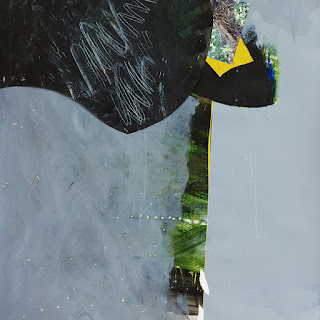By Nick Ostrum
For a few days a couple of times a year, I get pulled back into the soundworld of Lance Austin Olsen and listen to him intensively, when I am working, when I am reading, when I am just bumbling around. This two-part review (see part 1) is the result of one of those recent dives and covers much of his work since 2020.
Lance Austin Olsen and Terje Paulsen – Nattinsekter (Infrequency Arts, 2021)
Much of Olsen’s work can leave the listener feeling lost and wide-eyed, floating in the sonic doldrums wherein sound surrounds and undulates, but no singular line really breaks through to push the listener in one definitive direction or another. Other releases have a different kind of motion that is more linear, even if that line twists, turns, and entangles. It moves. This frequently comes with collaborations, such as A field of wildflowers for our lost souls (with Barry Chabala) (reviewed here ) and Nattinsekter (with Terje Paulsen).
The title Nattinsekter refers to Olsen’s childhood experiences in southern Rhodesia venturing out into the night to hear the dense orchestra of insects that surrounded him. (For an insightful piece on the score, see the latest issue of harmonic series.) This makes sense of these otherwise disembodied sounds, a combination of Terje Paulsen’s field recordings and organ work and Olsen’s guitar and amplified objects. Indeed, this sounds full. It surrounds the listener. As Drouin has done in collaborations with Olsen, Paulsen seems to lay the sonic tapestry through which he and Olsen weave their sprawling embroidery. Indeed, the quilting of field sounds really works for this piece in a way it might not for others, with other inspiration. The insect sounds are implied and captured in memorial essence, but never mimicked or simple recorded and played. The recordings come from elsewhere, which helps universalize the listening experience. This may be inspired by the Zimbabwean velt, and, like any nighttime field or forest, is strange and curious. However, it is also calming, with impressionist hints of nature here and there to spark the listener’s own reminiscence of a youth in whatever nighttime wild they found themselves. Turn this one up loud and let it take you back.
















1 comments:
I do not usually cross media like this, but the timing overlaps closely enough to make this a fitting conclusion to the last two days of reviews. Earlier this month, Olsen and Drouin launched an online gallery (https://infrequency.org/) for their visual art, which often graces the covers of their releases. It is well worth the visit, especially if you want a wider take on their aesthetic vision.
Post a Comment